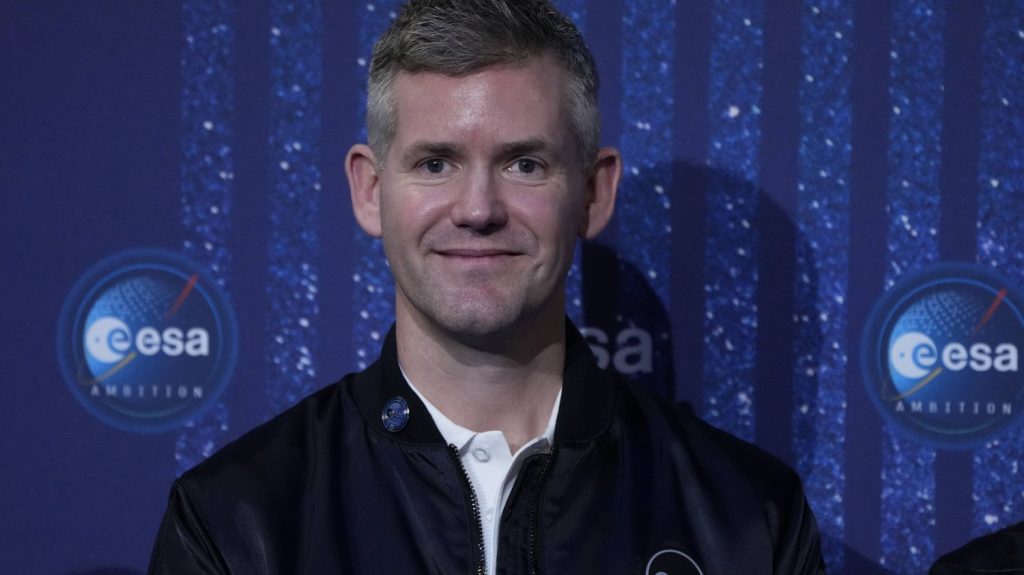
Who is John McFall, the first parastronaut in history?
“Being an amputee, I never thought becoming an astronaut was a possibility.” However. On Wednesday, November 23, the European Space Agency (ESA) selected former Paralympic champion John McFall to join its training program as the first Parastronaut in history. Franceinfo introduces you to the man who now hopes to become the first disabled person to go into space.
His Journey: From Paralympic Champion to Doctor
Born in 1981 in a city in southern England, John McFaul saw his fate change at the age of 19, in August 2000, during a year’s vacation in Thailand. “I was in Koh Samui on my motorbike to see the Big Buddha. I knew I was going too fast on a curve. The motorbike skidded and I stretched out my leg to stop it from falling”Tell The Independent*. The result: a fractured kneecap, a partially amputated femur due to the chain and an amputation, with “40% chance of survival” before the operation.
Deprived of his right leg, John McFall, from a military family, must give up his dream of joining the military. His new battle: to walk again, then take refuge. It worked. After graduating from the sports arena at the university, he even became a professional athlete and an ordinary Paralympic. After a first European medal in 2005 and a world podium in 2006 comes the dedication: The Briton was crowned world champion in the 100m and 200m in 2007, before shining in front of the crowd with a Paralympic bronze medal over 100m in his class at the 2008 Beijing Olympics.
According to The telegraph*. He imagines himself crossing the desert on foot and the Atlantic Ocean by canoeing, or even getting a parachutist certificate. He started with another challenge: he began studying medicine in Wales. He graduated in 2014, and has since settled in his home region as an Orthopedist and Traumatologist. Married and father of three children, ages 5, 8 and 9, he has not forgotten his sports career: he worked in particular in organizing the 2012 London Paralympics.
His motives: to prove that “science is for everyone”
“When it was announced that the European Space Agency was looking for a candidate with a physical disability, I thought it was a great opportunity.”John McFall said, Wednesday, during a ceremony presenting the new upgrades for astronauts. “With my scientific background and different experiences, I felt I had to try to help ESA answer the question: Can we send someone with a physical disability into space to do meaningful work there?” He completed.
When it launched its recruitment campaign in February 2021, the European Space Agency opened up a parallel procedure for people with physical disabilities for the first time. Were eligible candidates those with lower extremity disabilities (due to amputation or congenital malformation), persons measuring less than 1.30 metres, or with leg asymmetry. The intellectual and psychological skills required remained the same as for the other astronauts.
After cognitive, technical, and personality tests, followed by psychometric assessments, medical tests, and “work” interviews, John McFaul told himself ‘Very proud and excited’ They are arrested. “The message I want to give to future generations is that science is for everyone and I hope space travel is for everyone.”
Its mission: to make space more inclusive
As part of the training programme, the Briton must take part in a study “Possibility” On the arrival of space flights to Parastronauts. This program aims to study the challenge of sending a disabled astronaut into space and find solutions to overcome it. One of the first steps will be ensuring that a parastronaut can safely evacuate a rocket in the event of an emergency, according to BBC*.
“They say everyone in space is disabled, indicates, quoted by Parisian. When you look at the details, you use your legs differently in space. But we do not know whether amputation is an advantage or a disadvantage. Should I wear a prosthesis or not? Would gravity have a different effect on the amputated limb? That’s the whole idea of my involvement and what we’re going to work on.”
When does John McFaul expect to reach space? “Space is not an activity for people in a hurry”interim chief astronaut physician at the European Space Agency, Guillaume Wertz, in an interview with AFP. “It really depends on what we’re going to face.”He stresses that there is still a lot of work to be done after the selection of the candidates. Before you draw a timeline: A disabled astronaut could be sent into space Likely within the next ten years..
* Links refer to articles in English.

“Organizer. Social media geek. General communicator. Bacon scholar. Proud pop culture trailblazer.”
